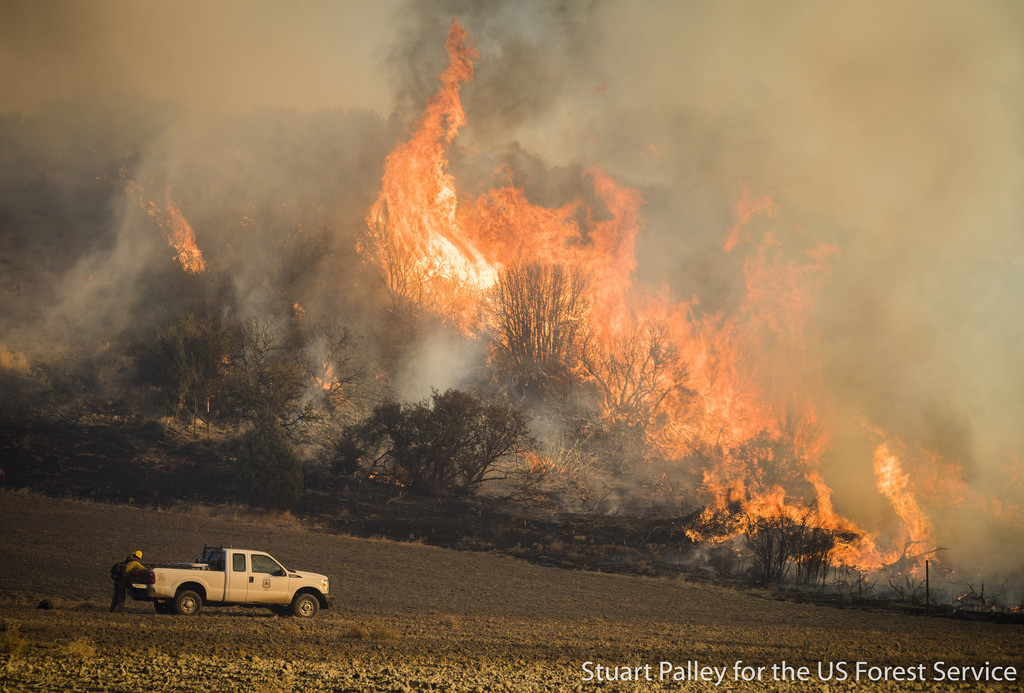Focusing on three areas where decision making may impact the vulnerability of communities to wildfire
The primary response to reducing catastrophic fire losses has been fire control with the goal of preventing large fire events. However, growing evidence suggests we will likely never be able to eliminate fires on highly fire-prone landscapes. Thus, in conjunction with analysis of traditional fire management approaches (including fuel breaks and suppression), we are exploring a range of alternative approaches to fire management that could potentially greatly minimize community vulnerability to these inevitable fires. In conjunction with the USGS, CBI is focusing on three areas where decision making may impact the vulnerability of communities to wildfire:
(1) Wildland landscape management practices that affect the probability of potentially destructive fires reaching urban environments. Research team leader: Dr. Ross Bradstock
(2) The extent and pattern of residential development and wildland-urban interface zones that play a key role in the probability of fires encroaching into urban environments. Research team leader: Dr. Alexandra Syphard
(3) Patterns of home construction and urban landscaping that determine fire spread within the urban environment. Research team leader: Dr. C.J. Fotheringham.
In each of these spatial domains, management practices have potential for reducing wildfire losses in the urban environment. Through modeling the outcomes of alternative management practices, we will provide decision makers with information on future losses under ‘business as usual’ and alternative management or policy scenarios. These outcomes will be evaluated in a Bayesian decision-making network analysis that will provide optimum combinations of treatments from these three management areas.

